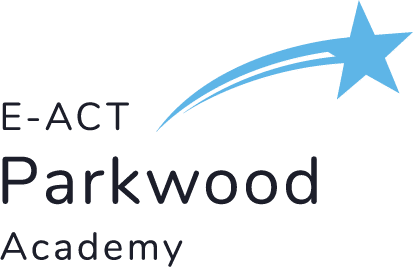Our approach to learning
E-ACT Parkwood Academy Curriculum Intent.
The Pillars of our Curriculum:
Powerful, Knowledge Rich:
This Teaching and Learning intent outlines the ‘Non Negotiables’ that we all believe as an Academy helps our young people ‘Believe, Achieve and Succeed.’ These Non Negotiables should be deep rooted into all of our long term, midterm plans and lessons and used to ensure all students make maximum progress in learning the curriculum.
Our aim for Parkwood students is to deepen and develop their knowledge and understanding of the world around them. In particular, we want students to become knowledgeable about the subjects we are teaching – we have selected topics so that the curriculum is comprehensive, but necessarily selective.
Knowledge is key – we know this when looking at student cognition. Neuroscientists have made the link between pleasure and problem solving. When we solve a problem, the brain emits a small amount of dopamine which in turn, makes students happy! For problems to be solved, the thinker needs adequate knowledge, room in their working memory and therefore the required facts and procedures in long term memory. Our curriculum is knowledge rich so to empower our learners to become better thinkers.
Demanding content in subject disciplines
Our long-term plans show the key content that students will be taught. Each component is accompanied by a ‘Big Question’ (composite) which aims to give students a clear rationale for their learning during each component. These questions are also the basis for assessment at the end of each component – students will be asked to answer the ‘Big Question’, and in doing so will demonstrate the curriculum knowledge they have gained i.e. their progress.
Learning is sequenced to ensure that students are able to ‘layer’ knowledge over time and add to their existing schema. Learning is designed to deliver core knowledge that students will use throughout the subject topics. These threshold concepts (essential declarative knowledge, without which students will struggle to make progress) have been identified within our medium term-planning. They connect all of the topics and this ensures that students have knowledge of these threshold concepts in a range of contexts. Composites in all subjects deliver core knowledge but with a relevant and topical hinterland to ensure procedural knowledge is gained and learning is maximized.
Assessment is a key part of this. Formative and summative assessment form the triangulation with teaching and planning – it serves learning and consolidates what students know over time. We have adapted assessment to be truly synoptic, with regular retrieval practice, composite ‘big questions’ and exams which test not only the learners immediate knowledge but knowledge retrieved from learning over terms and years.
Sequencing to develop and deepen schema in long term memory
Our curriculum is deliberately ambitious, and challenges students to truly understand the core knowledge that they need to succeed. It embraces learning from cognitive science about memory, forgetting and the power of retrieval practice. Our curriculum is not simply a set of encounters from which children form ad hoc memories; it is
sequenced to be remembered in detail; to be stored in our students’ long-term memories so that they can later build on it forming ever wider and deeper schema. This requires approaches to curriculum planning and delivery that build in spaced retrieval practice, formative low-stakes testing and plenty of repeated practice for automaticity and fluency.
Cultural capital in order to deliver a ‘rich’ curriculum also plays a huge part in the design of students’ learning. Hywel Roberts tells a story about teaching in a school in Sheffield –his experience is incredibly similar to ours. The class are looking at town planning and urban developments, so as a way in, he asks them what they might find in a great city – if the city of Sheffield were to be redeveloped, what would they put there? One by one, the children list things the city should have – a Greggs, a BP Garage, a hairdressers called Streakers…they are describing their walk to school. For many of the children, their only experience of the city they live in is the walk to and from school. For those children and others like them, getting on a coach and going to a museum is about far, far more than remembering aspects of the curriculum. It can be literally life changing. At E-ACT Parkwood Academy we aim to offer a curriculum rich in experience so that students move towards building upon knowledge. To ensure that children know what to do with it. That they can’t just name emperors and kings, but that they can consider the pitfalls of power. That they can’t just name rivers and mountains, but that they understand how mankind is at the mercy of our natural environment as much as we are able to control aspects of it. They should understand that our capacity to destroy is matched by our capacity to create. They should know the best that has been said and done in a whole range of cultures as well as our own, but more than that – that the best that is to be said and done may well be yet to come. From them.
Parent guide to effective revision
To find out more about our curriculum please contact Mrs. Windle sarah.windle@pwa.e-act.org.uk
